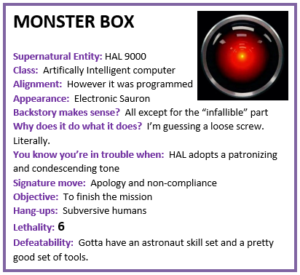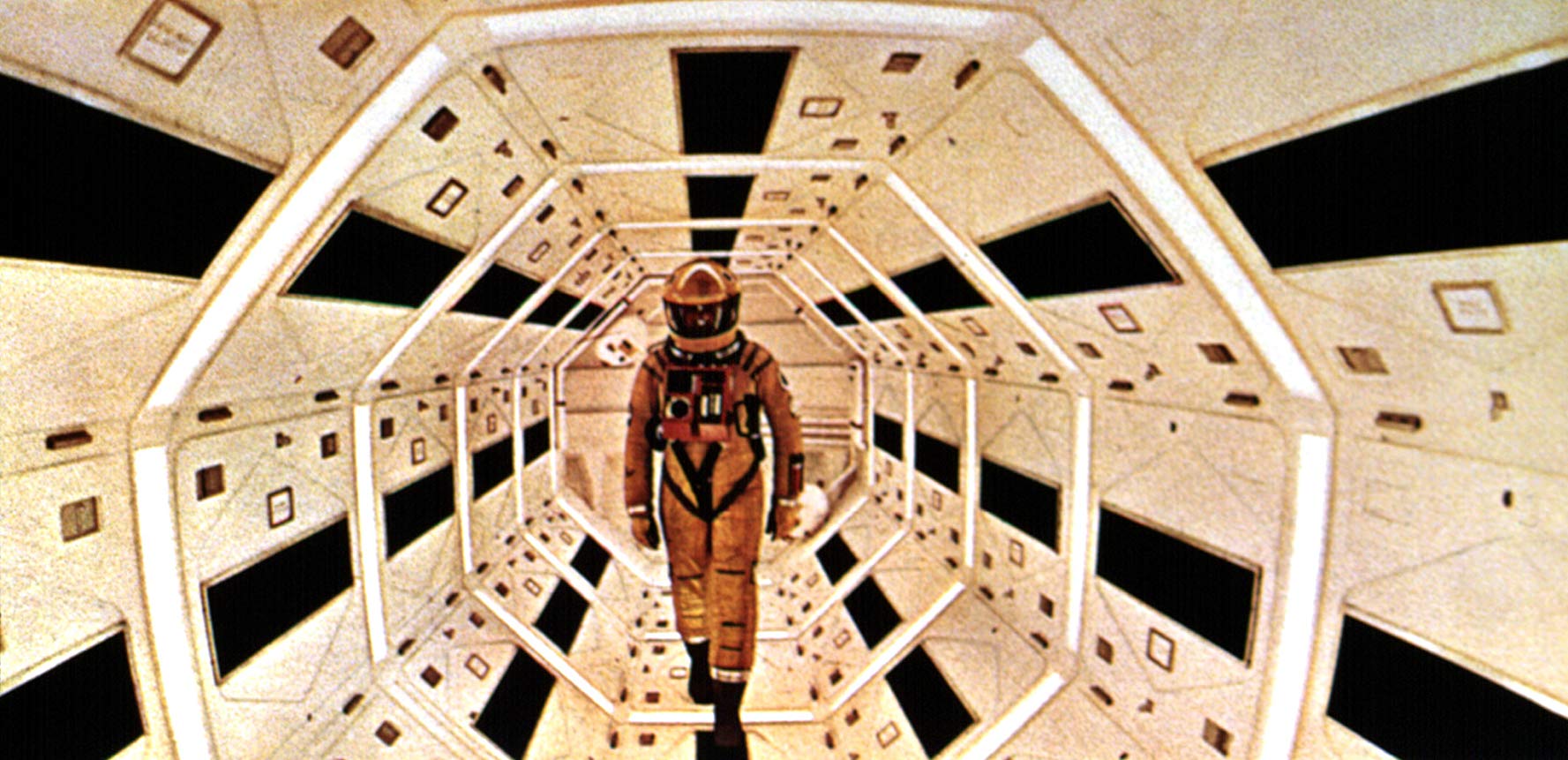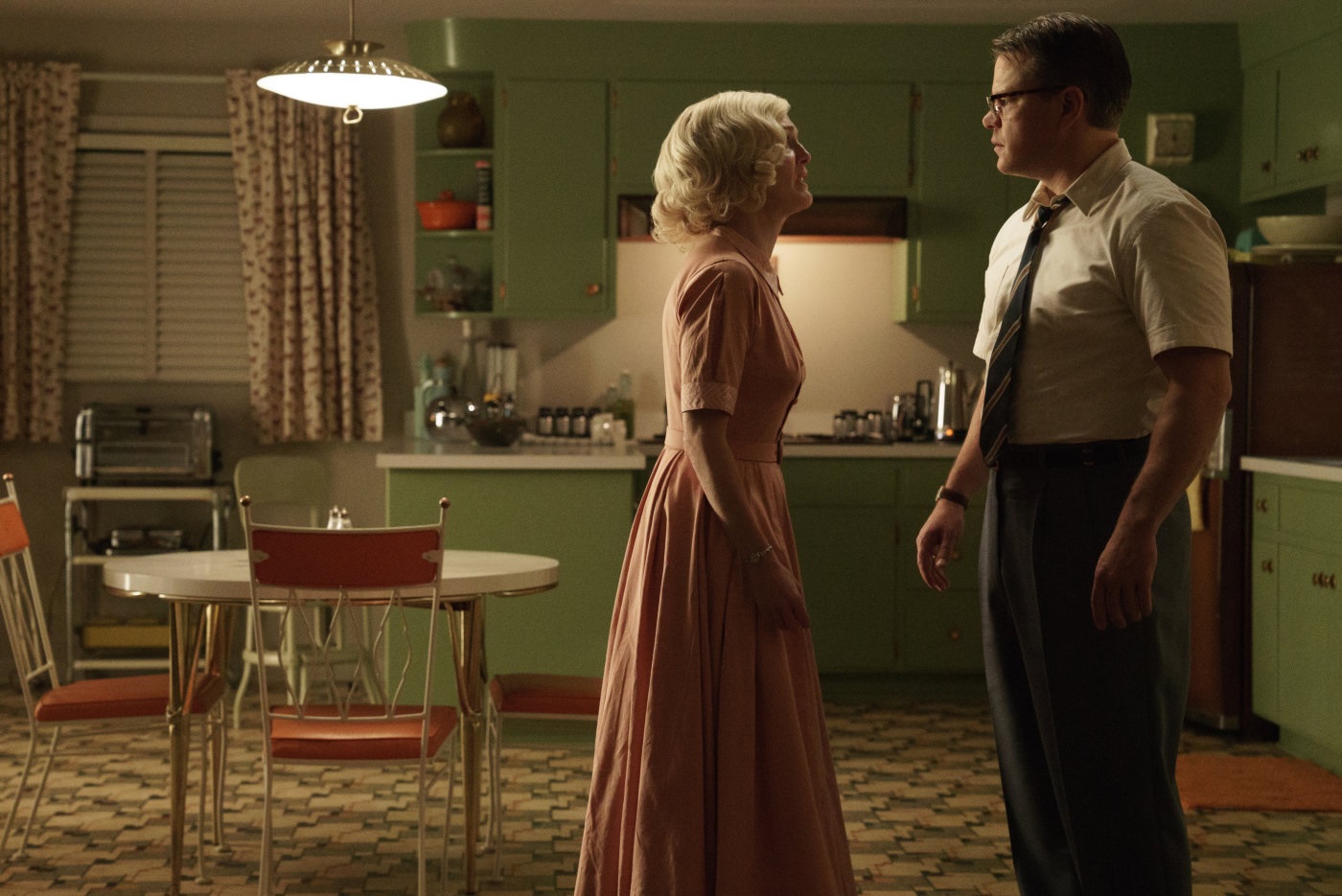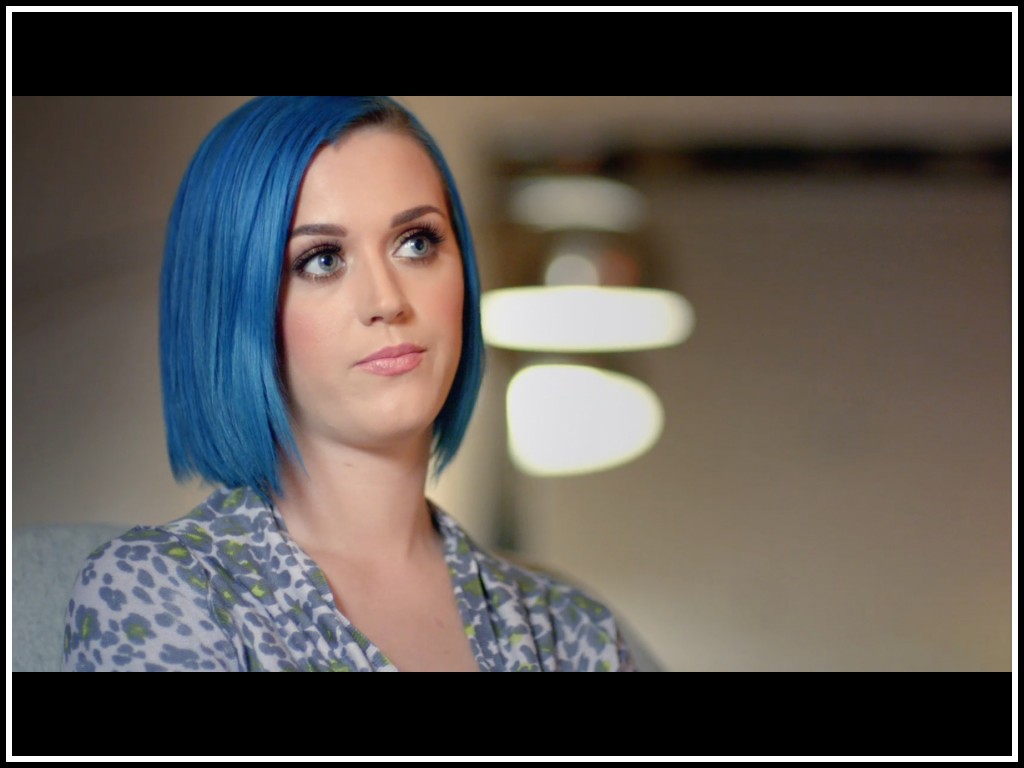It’s a gorgeous confusing, this cinematic masterpiece. The biggest takeaway from my nth viewing of 2001: A Space Odyssey is if Stanley Kubrick did fake the moon landing, wouldn’t it have been prettier? And set to classical music? I do not buy the fake moon landing conspiracy bullcrap on that score alone – Stanley Kubrick would have sold the world an adventure, not a piece of history.
Not unlike space travel itself, 2001 is a film in no hurry to get anywhere fast; my Laser Disc player (yes, you read that right) clocked the initial intelligible scripted word at 26:15. And it’s not like it got all chatty in the two hours that followed. For the uninitiated, let me try to explain. This is a movie told in four segments: it starts with the dawn of man, and then it FFs to the space age for the last three segments. In each segment, Stanley Kubrick falls in love with setting. Establishing shots mark this film like halos and wings mark angels. The film has an endless array of “WOW” captures set to 19th century classics you will recognize by tune if not name like “Also sprach Zarathurstra” and “The Blue Danube.” No film has done more for 19th century music than 2001.
Oh, and the film seems to be narrated by a voiceless black time-traveling obelisk. It keeps showing up to inspire tool usage among hominids only then to make us question exactly why we started using tools in the first place. Like in the opening segment, there’s just plains and apes and tapirs. Then the obelisk shows up and suddenly the li’l hairy pre-men are tool users. And it takes them about a pre-historic Serengeti minute to start using tools as weapons. Good job, early man.
The most notable and frightening segment involves a trip to Jupiter soured when the infallible HAL-9000 computer gets wonky. This is not the first time movies introduced the downside of artificial intelligence or giving personality to a computer, but this is the model by which all cinematic conflict between human and computer is based. The first time you hear the calm-yet-patronizing automatic voice of HAL say, “I’m sorry Dave (Keir Dullea), I’m afraid I can’t do that” is a bit chilling. Now, is 2001 a forerunner to the robot apocalypse? No. I think it’s more a forerunner to “Dammit! This thing ate my data!” and that scene in Office Space where the boys go to town on the printer.
Did anyone ever try unplugging HAL 9000 and plugging “him” back in again?
So what was 2001 all about, this incomprehensible, methodical mind-screw? Hell if I know. This film was so far ahead of its time, we still might not be there yet. Yes, it was made in 1968, but the “revolutionary” special effects found in Star Wars (1977) were no better. For mere effects, 2001: A Space Odyssey is a more brilliant film than almost any 1980s space epic. Compare this film on a technical scale to Blade Runner or Aliens or any of the first few Star Treks … does it come up short or the other way around?
might not be there yet. Yes, it was made in 1968, but the “revolutionary” special effects found in Star Wars (1977) were no better. For mere effects, 2001: A Space Odyssey is a more brilliant film than almost any 1980s space epic. Compare this film on a technical scale to Blade Runner or Aliens or any of the first few Star Treks … does it come up short or the other way around?
I digress. 2001 is as revolutionary mind-boggling as it is technically advanced. There’s no way Darren Aronofsky or Christopher Nolan get to play with minds in the 21st century without 2001 paving the way for its special brand of 1968 “WTF?” I know this – 2001: A Space Odyssey is the good kind of confusing where you don’t understand, but you feel that things will be all right. No, I am not adding anything to the running decades of discussion over what this film means, nor do I intend to. 2001: A Space Odyssey is entirely intended to be appreciated or slept through on an individual level well before a discussion level, and that’s where I choose to honor it.
♪A man soars in a ship
It’s a ship in a strange world
Maybe it’s a film stage
Maybe it’s where they filmed Cocoon
He doesn’t dig computers
He holds no pass code
He is recipient of surround sound
Battle in projection
Pink Floyd laser light show
He touches ground, ground
He sees himself as an old man
This film is insanity
My wife says “it’s over! Hallelujah!”
If you run diagnostics
I can flunk my psych e-val
I can call you “Doctor”
And Doctor when you call me
You can call me HAL♫
Rated G, 149 Minutes
Director: Stanley Kubrick
Writer: Stanley Kubrick, Arthur C. Clarke
Genre: Epic
Type of being most likely to enjoy this film: Film historians
Type of being least likely to enjoy this film: The impatient
♪ Parody Inspired by “You Can Call Me Al”




